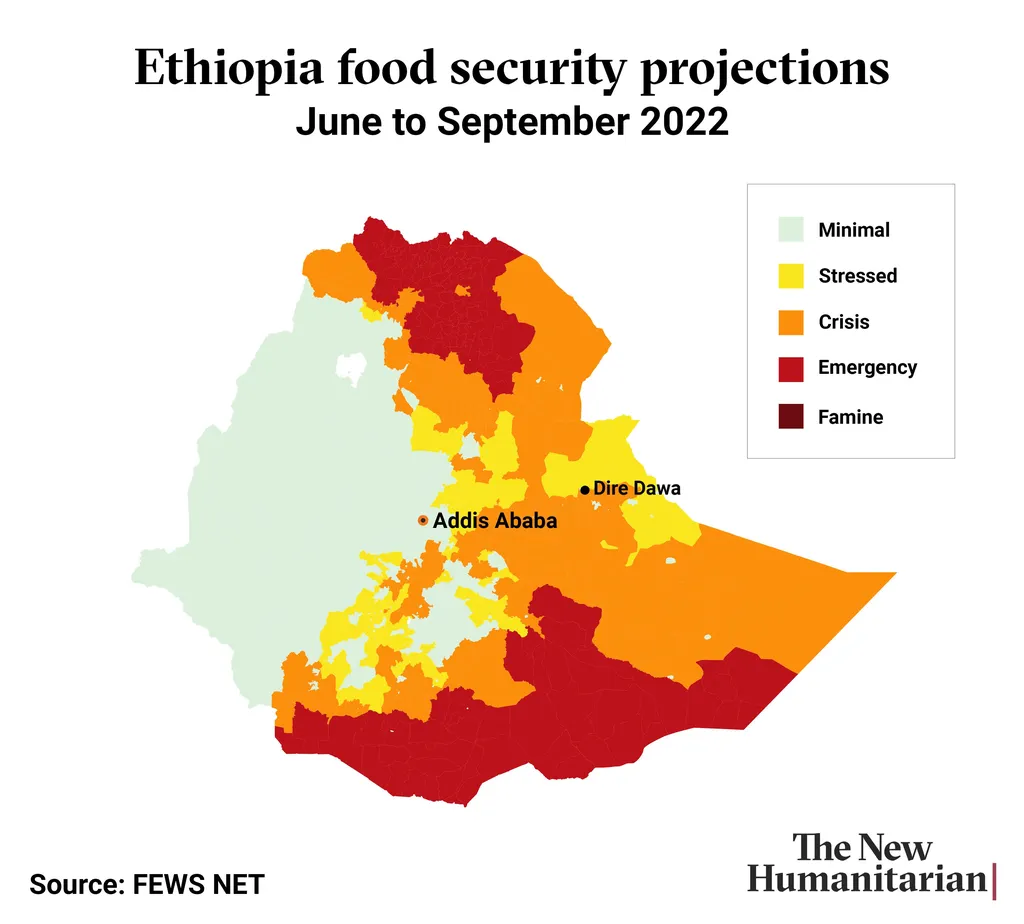In the heart of Ethiopia, where agriculture is the backbone of the economy, a silent crisis is unfolding. Climate change, with its erratic weather patterns and shifting temperatures, is chipping away at the very foundation of the nation’s food security and economic stability. A recent study published in *Cogent Food & Agriculture* quantifies these impacts, revealing stark figures that underscore the urgency of the situation.
The research, led by Tasfaye Fayisa from the University of Warsaw, delves into the short-run effects of climate change on crop values and poverty in Ethiopia. Using Ethiopian Economic Survey data from 2011 to 2015, Fayisa employed the Hausman-Taylor estimator, a sophisticated statistical method that retains time-invariant variables like agro-ecology, providing a more comprehensive understanding of the impacts.
The findings are alarming. Major declines in crop values have been observed: barley production has plummeted by 32.6%, sorghum by 55.0%, teff by 21.9%, and wheat by 18.4%. Maize, a staple crop, has also seen a significant drop of 17.9%. These losses are not just numbers on a page; they translate into real economic impacts. Annually, the study districts are losing approximately US$75,357 in crop value, which amounts to a staggering US$1.057 billion nationwide.
“These losses are not inevitable,” Fayisa asserts. “They represent a significant blow to the livelihoods of millions of Ethiopians. If these losses had been retained as household income, 1.2 million people locally and 3.6 million nationally could have escaped poverty. That’s a reduction in poverty by 17.55% and 16.6%, respectively.”
The commercial implications for the agriculture sector are profound. Farmers are facing reduced yields and income, which in turn affects their ability to invest in better seeds, fertilizers, and technologies. The ripple effect extends to the broader economy, impacting food prices, employment, and economic growth. The study highlights the need for agroecology-based adaptation strategies, such as small-scale irrigation and climate-smart agricultural practices, to build resilience and mitigate these impacts.
Fayisa’s research is a wake-up call, emphasizing the critical need for targeted interventions. “Adaptation is not just about surviving; it’s about thriving,” Fayisa notes. “By investing in climate-smart practices, we can protect our farmers, our economy, and our future.”
As the world grapples with the realities of climate change, studies like Fayisa’s provide invaluable insights. They underscore the importance of understanding the local impacts and developing tailored solutions. The findings from Ethiopia serve as a stark reminder that climate change is not a distant threat but a present reality, demanding immediate action and innovative strategies to safeguard agricultural output and reduce poverty.
In the quest for sustainable development, such research is a beacon, guiding policymakers, farmers, and stakeholders towards a more resilient and prosperous future. The path forward is clear: embrace adaptation, invest in innovation, and prioritize the needs of those most vulnerable to the changing climate.

